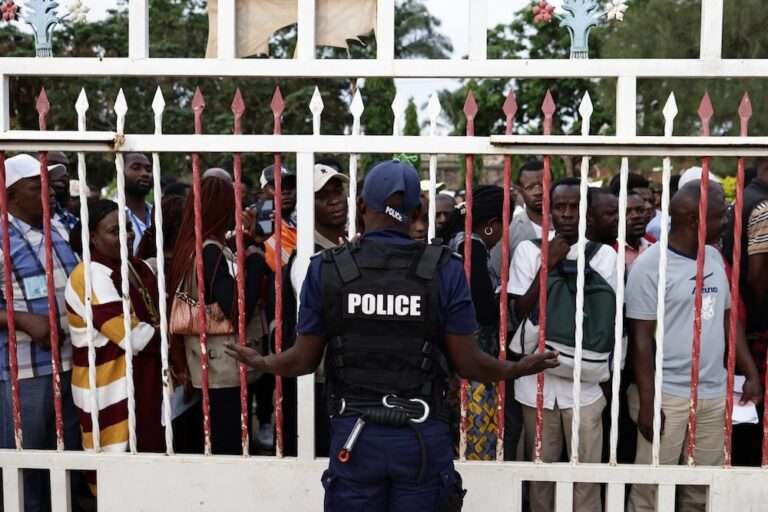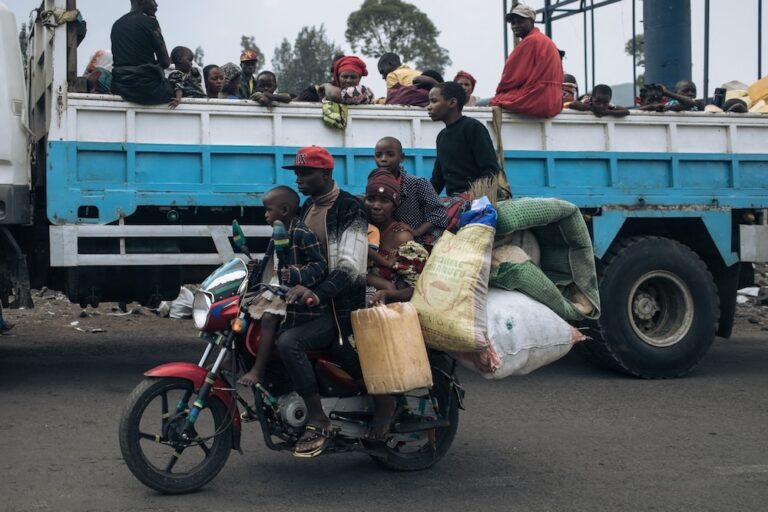(JED/IFEX) – In a 16 March 2001 decision (no. RP 16879 IV), the Kinshasa/Gombe High Court sentenced Jean-Luc Kinyongo Saleh, publisher of the Kinshasa-based biweekly “Vision”, in absentia, to “four months’ imprisonment and immediate arrest”, for libel, and also ordered him to pay a fine of 500,000 Congolese francs (US$2,500 under the real exchange rate) […]
(JED/IFEX) – In a 16 March 2001 decision (no. RP 16879 IV), the Kinshasa/Gombe High Court sentenced Jean-Luc Kinyongo Saleh, publisher of the Kinshasa-based biweekly “Vision”, in absentia, to “four months’ imprisonment and immediate arrest”, for libel, and also ordered him to pay a fine of 500,000 Congolese francs (US$2,500 under the real exchange rate) in damages and interest to the state minister responsible for the interior, Gaëtan Kakudji, as reparations for having been wronged.
The court found Kinyongo guilty of libelling the minister. In an article titled “Dénis Kalume Virtual Prime Minister”, which appeared in the 8 and 16 February editions of “Vision” (issues 181 and 182), the newspaper stated that “Gaëtan Kakudji is one of those people who have most benefited from the war economy, which allowed him to scandalously become middle class in a flash.”
Following the article’s publication, on Friday 16 February, at 5:45 p.m. (local time), Kinyongo was arrested by officers who were identified by “Vision” editorial staff as members of the Congolese National Police’s Special Services (Services spéciaux de la Police nationale congolaise). With the help of people he knew, the journalist was able to escape from detention and has been underground ever since. Following protests by press-freedom and human rights organisations, the government, Special Services, and Minister Kakudji’s cabinet each denied that the journalist had been detained.
Reacting to the Kinshasa/Gombe High Court’s decision, Jean Kabongo, the “Vision” newspaper’s lawyer, described it as a “political affair.” The newspaper had not directly received a summons to appear before the court. Instead, it was presented to the newspaper’s backers. Consequently, the lawyer decided to appeal the court’s decision because of “procedural irregularities.”


